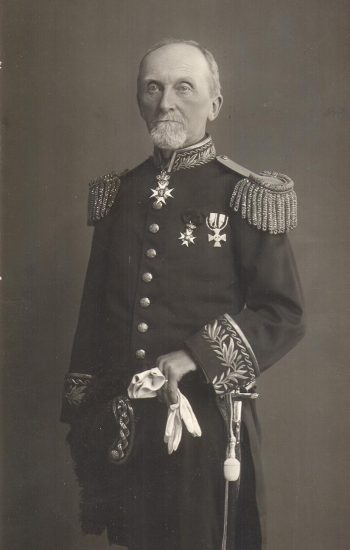History – Introduction
Foundation and Aims
The German Protestant Institute of Archaeology was founded on 19th June 1900 as a result of a resolution passed by the regional Protestant churches at the Eisenach Synod. The mission of the institute was clearly stated in its founding charter: the exploration of the Holy Land and its diverse past, cultures and religions. The knowledge acquired was meant to be available to, and discussed by, both experts and the general public. In light of this founding mission, the institute undertakes research on the history and culture of the region, especially focusing on the biblical era and the origins of Christianity.
Course 1906; with friendly permission of the Gustaf-Dalman-Institute Greifswald
To this end, the institute conducts its own excavations and supports other German research projects. The institute is also committed to disseminating the results of research, especially in the areas of archaeology, cultural studies, theology and the Church. For this purpose, the institute maintains a research library, issues its own archaeological journal and organises meetings, lecture series and exhibitions. Especially important is the Course Programme for theologians, which was founded over 100 years ago by the first director, Gustaf Dalman. The institute also tries to make archaeological knowledge available to the public by offering guided tours of Jerusalem and the surrounding area.
Structure
Since 1968 the German Protestant Institute of Archaeology, with its two branches in Amman and Jerusalem, has existed as a foundation of the The German Protestant Church (EKD) in Hannover, which is in charge of its administration. It is supported for projects by the German Federal Foreign Office and is a research unit of the German Archaeological Institute (DAI). The library and projects of the institute are supported by our Circle of friends. Our flyer is available as download.

